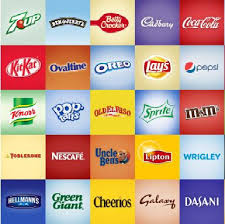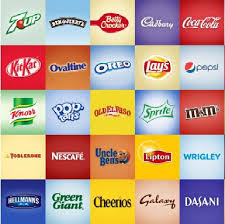
Consumers are still constantly stocking up on food items at home and reports suggest that the variety of grocery stocks on store shelves is not what it was before the pandemic hit the world.
While one of the reasons is the faster than usual sale of such products, it is also because of major food companies that make cookies, chips and canned soups have scaled back the variety of products that they manufacture.
There was a massive increase in demand from customers for products of companies such as Mondelez, General Mills, PepsiCo, J.M. Smucker, Campbell, Coca-Cola and others when the novel coronavirus pandemic forced governments to issue lockdown and stay-at-home orders since March. Companies ramped up production of those products that are most popular in order to meet the sudden spike in demand which meant less focus on manufacturing of fringe products. That meant lesser variety of products on the shelves, for example from Jif peanut butter, Oreo cookies and Frito-Lay chips.
The major reason for scaling back on fringe products is the need for major food product manufacturers to halt their production lines to allow for production of a different product and its packaging when changes in varieties are implemented.
"There's significant time required to change lines," said Jonathon Nudi, General Mill's group president of North America retail, during a March conference call with analysts. One of the ways to simplify the supply chain is making lesser variety of products, he added. In recent months, the production of the variety of its chicken soups has been reduced by General Mills, which makes Progresso Soups.
At a time when more people are being forced to eat at home which has consequently increased demand for certain food products which has forced food manufacturing companies to speed up the production process.
"The less complexity there is in [the supply chain], the greater the chance for success," said Coca-Cola CEO James Quincey during an April call with members of the media. "Focusing in on the largest brands," like Coke, Coke Zero, Simply and Minute Maid, was a benefit to consumers during the early days of the pandemic, he added.
With a reduced variety of products, companies are also able to scale down the expanse of their advertising, distribution and sales processes, thereby allowing them to focus funds and energy on a smaller number of products.
This marks a stark difference to strategies of such companies compared to the pre pandemic era. Typically strategies to tap into a food trend are implemented by big food companies by adding new varieties of an existing brand. Prior to the pandemic, such strategies meant stress and complexity of their supply chains, but that was worth the effort because it such strategies enabled food companies to move fats into new and fast growing product categories. However since the pandemic, the changed focus on production, distribution and marketing of the products that people are buying the most makes more sense – which includes comfort foods, staples and straightforward flavors.
For example, Mondelez started making lesser variety of its most popular brands such as Oreo.
"Some of the innovation flavors that we have in the pipeline ... we've chosen to either postpone or cancel to allow us to make sure that, from a production standpoint and an execution standpoint, we can continue to deliver to consumers what they know and love," said Glen Walter, president of North America for Mondelez. Overall, the variety of Oreos available isn't "as robust today as it would have been before the pandemic," he said.
A similar strategy was adopted by General Mills, which maker of Cheerios cereal and Progresso soups.
"If you think about our Progresso Soup portfolio, we have nearly 90 [varieties], and within those we likely have several varieties of Chicken Noodle," explained Kelsey Roemhildt, the company's corporate communications manager, in an email. "Right now, our consumers and our retailers likely don't need the flavor variations so we're minimizing the variety we are making."
The variety of its chips portfolio has also been reduced by PepsiCo's Frito-Lay.
"We began streamlining our portfolio in early March, when we saw demand spike to unprecedented levels," said Frito-Lay Chief Customer Officer Mike Del Pozzo in an emailed statement. "To keep products in stock at the pace they were selling and to get more product to market faster, we reduced assortment of our core brands."
(Source:www.cnn.com)
While one of the reasons is the faster than usual sale of such products, it is also because of major food companies that make cookies, chips and canned soups have scaled back the variety of products that they manufacture.
There was a massive increase in demand from customers for products of companies such as Mondelez, General Mills, PepsiCo, J.M. Smucker, Campbell, Coca-Cola and others when the novel coronavirus pandemic forced governments to issue lockdown and stay-at-home orders since March. Companies ramped up production of those products that are most popular in order to meet the sudden spike in demand which meant less focus on manufacturing of fringe products. That meant lesser variety of products on the shelves, for example from Jif peanut butter, Oreo cookies and Frito-Lay chips.
The major reason for scaling back on fringe products is the need for major food product manufacturers to halt their production lines to allow for production of a different product and its packaging when changes in varieties are implemented.
"There's significant time required to change lines," said Jonathon Nudi, General Mill's group president of North America retail, during a March conference call with analysts. One of the ways to simplify the supply chain is making lesser variety of products, he added. In recent months, the production of the variety of its chicken soups has been reduced by General Mills, which makes Progresso Soups.
At a time when more people are being forced to eat at home which has consequently increased demand for certain food products which has forced food manufacturing companies to speed up the production process.
"The less complexity there is in [the supply chain], the greater the chance for success," said Coca-Cola CEO James Quincey during an April call with members of the media. "Focusing in on the largest brands," like Coke, Coke Zero, Simply and Minute Maid, was a benefit to consumers during the early days of the pandemic, he added.
With a reduced variety of products, companies are also able to scale down the expanse of their advertising, distribution and sales processes, thereby allowing them to focus funds and energy on a smaller number of products.
This marks a stark difference to strategies of such companies compared to the pre pandemic era. Typically strategies to tap into a food trend are implemented by big food companies by adding new varieties of an existing brand. Prior to the pandemic, such strategies meant stress and complexity of their supply chains, but that was worth the effort because it such strategies enabled food companies to move fats into new and fast growing product categories. However since the pandemic, the changed focus on production, distribution and marketing of the products that people are buying the most makes more sense – which includes comfort foods, staples and straightforward flavors.
For example, Mondelez started making lesser variety of its most popular brands such as Oreo.
"Some of the innovation flavors that we have in the pipeline ... we've chosen to either postpone or cancel to allow us to make sure that, from a production standpoint and an execution standpoint, we can continue to deliver to consumers what they know and love," said Glen Walter, president of North America for Mondelez. Overall, the variety of Oreos available isn't "as robust today as it would have been before the pandemic," he said.
A similar strategy was adopted by General Mills, which maker of Cheerios cereal and Progresso soups.
"If you think about our Progresso Soup portfolio, we have nearly 90 [varieties], and within those we likely have several varieties of Chicken Noodle," explained Kelsey Roemhildt, the company's corporate communications manager, in an email. "Right now, our consumers and our retailers likely don't need the flavor variations so we're minimizing the variety we are making."
The variety of its chips portfolio has also been reduced by PepsiCo's Frito-Lay.
"We began streamlining our portfolio in early March, when we saw demand spike to unprecedented levels," said Frito-Lay Chief Customer Officer Mike Del Pozzo in an emailed statement. "To keep products in stock at the pace they were selling and to get more product to market faster, we reduced assortment of our core brands."
(Source:www.cnn.com)














